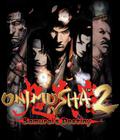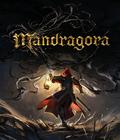
Genre : Strategy
Publisher: Strategy First
Developer: Paradox Entertainment
Release Date: July 22, 2003
Buy 'EUROPA UNIVERSALIS: Crown of the North': PC
 Ostensibly, this is a package deal, where you receive the two games in the Europa Universalis series in one box. I find reason to question this, as I have rarely, if ever, seen two games in the same series that are less like each other; at this rate of increase, it would not surprise me very much if a theoretical third game was, in fact, a high-impact ultra-realistic knitting sim.
Ostensibly, this is a package deal, where you receive the two games in the Europa Universalis series in one box. I find reason to question this, as I have rarely, if ever, seen two games in the same series that are less like each other; at this rate of increase, it would not surprise me very much if a theoretical third game was, in fact, a high-impact ultra-realistic knitting sim.
The big deal here is Crown of the North, which is sort of like Warcraft for the hardworking micromanager. The name of the game here is resource management and diplomacy, although it’s nowhere near as intricate a scenario as Europa Universalis.
Crown of the North is set in eastern Europe, between 1275 and 1340. In this period, Europe is split into feuding domains, theoretically ruled by a single king. The king, Birger Magnusson, has ascended to the throne far too young, and the dukes of Europe eye each others’ lands hungrily. In the ensuing open warfare, the time is right for a single ruler to, by alliance or force, seize uncontested rulership of eastern Europe.
Unlike Europa Universalis, Crown of the North is a relatively simple game. You can pick from six rulers, each of whom start from a different place on the map, with differing strengths and weaknesses. From your initial province, you can seize adjacent lands via force of arms, or attempt to buy your way into a royal marriage or a military alliance. The game starts at 1275, as noted above, and progresses until either there is only one surviving ruler of the North, or you make it to New Year’s Day of 1340.
You’ll begin with a handful of buildings, a token military presence, and neutral, unruled provinces surrounding you in every direction. Your army’s size is dependent upon your grain supply, which is generated by farms, while healthy marketplaces and cities raise your tax income, which in turn can be spent to build up your nation’s infrastructure. A marketplace, for example, can be refined from little more than a wooden grocer’s shack to a multistory trader’s office; likewise, invest in your church, and you’ll see it grow from a simple village parish to an elaborate stone cathedral.
A new ruler also begins with decent but unremarkable relationships with the four major groups in feudal society: the nobility, the clergy, the burghers (merchants), and the peasantry. You can play these groups off against one another, using the buildings within your provinces to improve one group’s opinion of you while lowering the others, or choosing carefully when certain timed events occur. For example, if you act to file down the silver content of coins in your realm, then you’ll gain a little extra cash and torque off the burghers. If you convert the royal farms for the usage of the general populace, the peasantry will love you, but the nobility and clergy won’t. If a group’s relations with you get too low, you might have to put down rebellions in your land, while their tax revenue increases with their love for you.
Your buildings’ size and architecture exist symbotically with each other, and with the soldiers you can recruit for your army. You need a strong church, for example, to hire knights, while the muster field where footsoldiers and crossbowmen train cannot be built up to its full strength while your castle remains underdeveloped. Unfortunately, regardless of the state of your finances, you can only train one military unit and upgrade one building at a time in each province you control; in theory, this keeps a multiplayer game from succumbing to the same kind of zerg/huntress rush (kekekekekeke ^____^) crap that taints other online strat games, but in practice, it means that you spend a lot of time staring at your screen, psychically willing progress bars to move faster.
Success in Crown of the North, like many other strat games, is largely a question of momentum. If you start off strong, seizing multiple provinces and keeping them upgraded, while simultaneously not doing anything at all to endanger your relationship with the groups within the governed populace—while the actions you can take within the buildings in your provinces can screw up your relationships, several of the regular timed events can increase your relations with a given sect without lowering another group’s—odds are that you’ll cruise to 1340. If you try to play defensively, marshaling the meager resources of your starting province to build up an army while simultaneously achieving diplomatic relations with your neighboring nation-states, then someone is gonna feed you your lunch before too long. 1275 is not a good time to be a pantywaist, man.
Granted, you lose a certain amount of honor for declaring war on another nation, regardless of your current relationship with them, but you’ll easily gain that and more back by winning the battles that crop up during a siege. Therefore, there’s really no reason aside from simple manpower not to just amp up your army to a marching horrible demon horde and declare war on anyone that shares a border with you. Is this the action of a “good Christian knight”? Probably not, but a half-dozen nations’ worth of tax income will buy one helluva plenary indulgence.
Theoretically, the game is real-time strategy, with a day in game time passing for every minute in real time, but you can pause the game whenever you want and take a leisurely look around the map, adjusting territories and attempting diplomatic reactions. On top of that, time is never of the essence in Crown of the North, since most battles take several days to resolve. This isn’t a game that you spend every moment staring at; instead, you let it run while you do chores around the house, or play your Game Boy, or something.
That tendency is what kind of turns me off. I’ll admit that I’m sort of a console-style, gameplay-oriented gamer with twitch tendencies, so something as slow and methodical as Crown of the North isn’t exactly my bag. It especially suffers from comparison with Europa Universalis, as that game lets you do everything from send out missionaries to subdividing troops with sliding menus. This is a considerably less shallow version of that, and I’m still kind of bored half the time.
So, that’s the final analysis here. Crown of the North is drenched in history and presented elegantly, but it’s a strat game for micromanagers and people with attention spans much longer than mine. I can see its appeal, but simultaneously don’t really find it appealing; we’ll call this one a draw at 7.0 and agree to disagree.
Score: 7.0/10



























